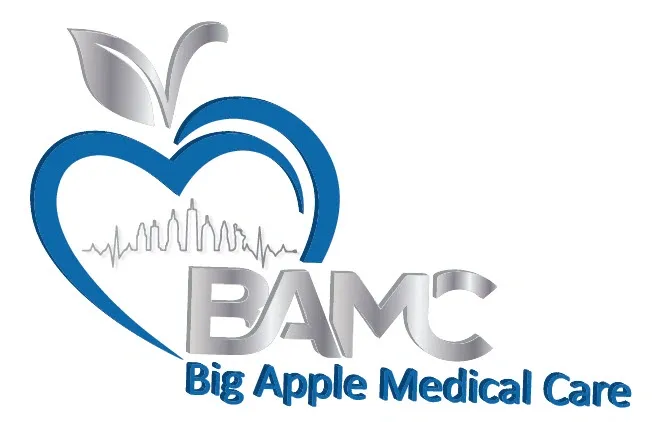Muscle loss during losing weight can be a major health goal — one that improves energy, boosts confidence, and reduces the risk of chronic diseases. However, when weight loss happens too fast, it often comes with an unwanted side effect: muscle loss. While fat reduction is beneficial, losing lean muscle mass can lead to slower metabolism, fatigue, weakness, and long-term health complications.
At Big Apple Medical Care, we emphasize that healthy weight loss isn’t just about shedding pounds — it’s about preserving strength, vitality, and metabolic balance. In this comprehensive guide, we’ll explore the science behind muscle loss during rapid weight reduction and outline proven strategies to maintain lean muscle mass while achieving your ideal body weight.
Understanding Muscle Loss During Weight Reduction
When you begin a calorie deficit (burning more calories than you consume), your body uses stored energy for fuel. Ideally, most of that energy comes from fat stores. However, when the deficit is too extreme or nutrition is unbalanced, your body begins to break down muscle tissue for energy.
Why Muscle Loss Happens During Rapid Weight Loss
-
Extreme Calorie Restriction:
Consuming too few calories deprives your body of the nutrients needed to maintain muscle, forcing it to use muscle proteins as an energy source. -
Inadequate Protein Intake:
Protein is essential for muscle repair and growth. Insufficient protein accelerates muscle breakdown. -
Lack of Resistance Training:
Without regular strength or resistance exercise, muscles lose their stimulus for maintenance, leading to atrophy. -
Low Carbohydrate Diets:
Severely cutting carbs depletes glycogen stores, which can result in muscle tissue being used for fuel. -
Overtraining or Excessive Cardio:
While exercise aids fat loss, too much cardio without proper recovery or nutrition can further stress muscles and promote breakdown. -
Hormonal Imbalances:
Rapid weight loss can disrupt hormones like testosterone and cortisol, both of which play roles in maintaining muscle mass.
At Big Apple Medical Care, our healthcare experts work with patients to develop balanced weight loss programs that minimize these risks while promoting sustainable fat reduction.
Why Preserving Muscle Is Critical for Healthy Weight Loss
Muscle tissue isn’t just about strength or appearance — it’s a metabolic powerhouse. The more muscle you have, the more calories your body burns at rest. Losing muscle slows your metabolism, making it easier to regain weight once you stop dieting.
Key Benefits of Maintaining Muscle During Weight Loss:
-
Increased Resting Metabolism: Muscle burns more calories than fat, even at rest.
-
Better Body Composition: Maintaining lean mass helps you look toned and defined.
-
Improved Strength and Mobility: Essential for physical function and independence as you age.
-
Stable Blood Sugar Levels: Muscle tissue enhances insulin sensitivity.
-
Enhanced Fat Burning: More muscle means higher fat oxidation rates.
In short, preserving muscle ensures that you’re losing fat — not fitness.
Optimal Strategies to Prevent Muscle Loss During Weight Reduction
The key to healthy, sustainable weight loss lies in balance — combining proper nutrition, exercise, and recovery to create an environment where fat is lost but muscle is preserved or even gained.
Let’s break down the most effective evidence-based strategies:
Eat Enough Protein — The Building Block of Muscle
Protein is the most important nutrient when it comes to muscle preservation. During a calorie deficit, consuming sufficient protein stimulates muscle protein synthesis (MPS) and helps prevent breakdown.
How Much Protein Do You Need?
Most experts recommend 1.6 to 2.2 grams of protein per kilogram of body weight per day for active individuals aiming to lose fat while retaining muscle.
Best Sources of Lean Protein:
-
Chicken, turkey, and lean beef
-
Fish (salmon, tuna, cod)
-
Eggs and egg whites
-
Greek yogurt and cottage cheese
-
Legumes and lentils
-
Whey or plant-based protein powders
At Big Apple Medical Care, we often recommend spreading protein intake evenly throughout the day — across 3–5 meals — to keep your muscles constantly fueled and supported.
Include Strength Training in Your Routine
When it comes to preventing muscle loss, resistance training is non-negotiable. Weightlifting or bodyweight exercises send signals to your muscles that they’re still needed, even during a calorie deficit.
Effective Strength Training Tips:
-
Train all major muscle groups 2–3 times per week.
-
Focus on compound exercises like squats, deadlifts, lunges, push-ups, and rows.
-
Gradually increase intensity (weight or resistance) over time.
-
Combine free weights and resistance bands for versatility.
For patients new to resistance training, our team at Big Apple Medical Care can design personalized fitness plans that align with their medical history and fitness level.
Avoid Extreme Calorie Deficits
Rapid weight loss often stems from consuming too few calories, which may accelerate fat loss temporarily but also causes significant muscle breakdown.
Instead, aim for a moderate calorie deficit of about 500–750 calories per day, which allows for steady weight loss (1–2 pounds per week) without harming muscle mass.
Your calorie needs depend on your age, gender, activity level, and body composition goals. Our specialists at Big Apple Medical Care use advanced metabolic testing to help patients determine their ideal calorie targets.
Balance Cardio with Resistance Exercise
Cardiovascular exercise supports fat loss and heart health, but excessive cardio without strength training can deplete energy and muscle reserves.
Smart Cardio Strategies:
-
Prioritize short, intense sessions (HIIT) over long-duration cardio.
-
Limit steady-state cardio to 2–3 sessions weekly.
-
Combine cardio and strength training days strategically for maximum results.
For example, pairing a 30-minute strength session with 15 minutes of HIIT cardio can burn fat efficiently while keeping muscles strong.
Get Enough Rest and Sleep
Muscle repair happens during rest, not during exercise. Inadequate sleep or recovery time raises stress hormones like cortisol, which promote muscle breakdown.
Tips for Optimal Recovery:
-
Get 7–9 hours of sleep per night.
-
Include rest days in your weekly exercise plan.
-
Practice stress management through mindfulness, deep breathing, or yoga.
-
Stay hydrated and replenish electrolytes after intense workouts.
Rest is not a weakness — it’s an essential part of any effective muscle-preserving weight loss strategy.
Support Hormonal Balance
Rapid weight loss can disrupt hormones that regulate metabolism and muscle growth. Low levels of testosterone, growth hormone, and thyroid hormones can accelerate muscle loss.
At Big Apple Medical Care, our medical professionals offer comprehensive hormone testing and metabolic analysis to ensure that your internal systems are functioning optimally during your weight loss journey.
If imbalances are detected, targeted nutritional or medical interventions can help restore normal hormone levels, promoting better fat loss and muscle preservation.
Don’t Neglect Healthy Fats and Carbs
Cutting fat or carbs too drastically can impair energy, performance, and hormone production. Both macronutrients play crucial roles in supporting overall health.
Healthy Fat Sources:
-
Avocado
-
Olive oil
-
Nuts and seeds
-
Fatty fish (salmon, sardines, mackerel)
Complex Carbohydrates:
-
Whole grains (quinoa, brown rice, oats)
-
Sweet potatoes
-
Fruits and vegetables
The key is balance — not elimination. Carbohydrates fuel workouts, while fats support hormonal function and joint health.
Stay Hydrated
Hydration affects everything from muscle recovery to metabolism. Water helps transport nutrients, regulate body temperature, and remove waste. Dehydration can lead to fatigue, poor exercise performance, and slower muscle repair.
Aim to drink at least 8–10 glasses of water daily, more if you’re exercising or sweating heavily.
Consider Professional Guidance
Achieving fat loss without muscle loss requires a strategic, science-backed approach. At Big Apple Medical Care, we offer individualized weight management programs that include:
-
Metabolic and body composition testing
-
Personalized meal plans designed by nutrition experts
-
Supervised exercise routines for safe, sustainable progress
-
Ongoing monitoring to adjust strategies as your body changes
This ensures that every patient achieves their desired results — stronger, leaner, and healthier.
How Big Apple Medical Care Helps You Maintain Muscle While Losing Fat
Our approach to weight management is rooted in medical science and patient-centered care. Whether you’re looking to lose a few pounds or undergo a complete body transformation, our multidisciplinary team provides support at every step.
Our Muscle-Preserving Weight Loss Program Includes:
-
Comprehensive health evaluations and lab testing
-
Customized nutrition and supplement plans
-
Exercise prescriptions tailored to fitness level and medical conditions
-
Regular body composition scans to track muscle and fat ratio
-
Ongoing medical supervision for safe and lasting results
We understand that every individual’s metabolism and physiology are different — which is why we focus on personalized care, not generic dieting.
Warning Signs You’re Losing Muscle Instead of Fat
If you’re losing weight too quickly or feel weaker than before, you might be losing muscle mass. Watch out for these indicators:
-
Rapid weight loss (>2 lbs per week)
-
Constant fatigue or weakness
-
Sagging or “soft” appearance despite weight loss
-
Decreased workout performance
-
Joint pain or poor recovery after exercise
If you notice these symptoms, our experts at Big Apple Medical Care can help you readjust your nutrition and fitness plan to protect your muscle health.
Conclusion: Build a Stronger, Leaner, and Healthier You
Sustainable weight loss isn’t about depriving your body — it’s about nourishing it wisely. Preventing muscle loss during weight reduction ensures that your transformation is not only aesthetic but also functional and long-lasting.
At Big Apple Medical Care, we believe in a balanced, medically guided approach that helps you lose fat, preserve muscle, and enhance overall well-being. Through personalized nutrition, expert training guidance, and ongoing support, we help our patients achieve results that last a lifetime.
Because true health isn’t just about the number on the scale — it’s about strength, vitality, and confidence in every step you take.







